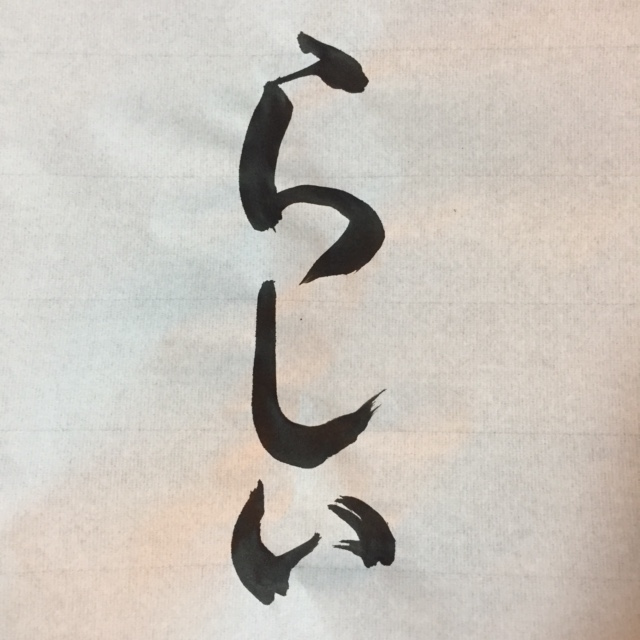December 1, 2016
Word Wise: More You, But in a Good Way
らしい Rashii
By Richard Medhurst

Other uses may require more thought. A phrase from a recent Japanese headline—いかにもグーグルらしい—describes the tech giant’s Pixel XL smartphone. The review starts with examples of the company’s hardware failures, including Google Glass. The headline phrase appears further down the article, glossed with the explanation that the phone is fun but not childish. It is グーグルらしい in that it is hardware “worthy of Google.” Or to put it less directly, it is “the kind of product we have come to expect from Google.”
It is possible to say that it is “typical Google,” although I think I’d shy away from using that. In English, “typical” relies on context to show whether this is a positive, negative, or neutral assessment. It could be argued that the nearby “fun, but not childish” praise makes it clearly positive, but I’d prefer to use a less ambiguous word given the earlier noting of hardware failures. This is complicated by the fact that らしい does sometimes mean a neutral “typical” as well as a positive “worthy of.”
The full headline is 「Pixel XL」試用レビュー--いかにもグーグルらしい、楽しく優秀なスマートフォン. If a close translation was required, I would suggest: Pixel XL User Review: A Fun and High-Quality Smartphone Worthy of Google.
In a different context, if a company representative was talking about a Google product with グーグルらしい, some other options would be “true to our ideals” or “we can be proud of.” These could also be used for individuals being 自分らしい, although there is great potential variation depending on context. For athletes talking about 自分らしい performances, “my best shot” springs to mind. A 自分らしい lifestyle might be “true to one’s self” or we might simply talk about “living sincerely.” A 自分らしい hairstyle could be “right for you” or “that suits you.”
Translating a word like らしい in the sense discussed above provides a reminder that dictionaries can be of very limited use at times. While “worthy of” is often a fall-back option, it does not always work, so you may need to apply some 翻訳家らしい creativity. Whether you thought this month’s column was worthy or just typical, send your thoughts on translating らしい or ideas for future words to SWET.

Comments:
There are no comments for this article yet.
Add your comment:
If you are a SWET member, log in to post a comment immediately. Comments are moderated for non-members.